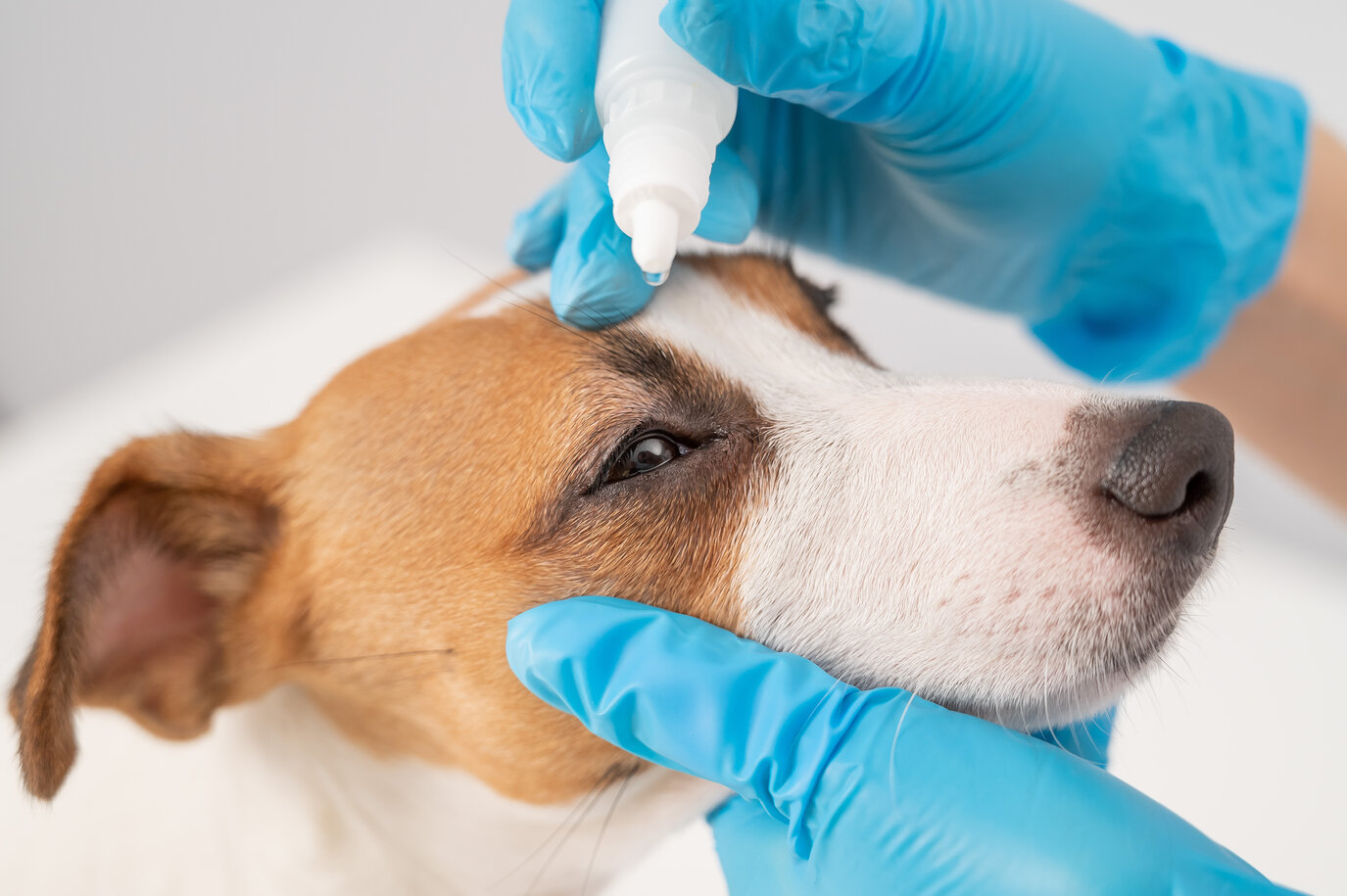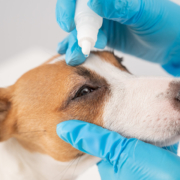KCS in Dogs: Symptoms, Treatment, and More
 Keratoconjunctivitis sicca (KCS), often referred to as dry eye, is inflammation of the cornea and surrounding tissues due to inadequate production of tears. Tears are necessary to lubricate the cornea and remove debris or any infectious agents that come in contact with the eye. The tear film is a mixture of mucus, fatty liquid, and water.
Keratoconjunctivitis sicca (KCS), often referred to as dry eye, is inflammation of the cornea and surrounding tissues due to inadequate production of tears. Tears are necessary to lubricate the cornea and remove debris or any infectious agents that come in contact with the eye. The tear film is a mixture of mucus, fatty liquid, and water.
Symptoms of KCS in Dogs
Most dogs with KCS will have painful, red, irritated eyes. Squinting and excessive blinking often signal a dog’s mom or dad to get their pet to a veterinary professional for treatment. Additionally, KCS often includes symptoms of thick, yellowish mucous discharge due to the lack of the watery component of the tear film. Corneal ulceration may also be present.
Patients with chronic cases of KCS often present with a history of conjunctivitis, eye injuries, and ulcers. Corneal scarring, hyperpigmentation, usually occurs with cases of KCS and looks like a dark film covering the dog’s eye.
Is A Dog More Likely to Contract KCS Because of Their Breed?
KCS most commonly affects middle-aged to older dogs. It’s more likely to be seen in the following breeds:
- American Cocker Spaniel
- Bloodhound
- Boston Terrier
- Cavalier King Charles Spaniel
- English Bulldog
- English Springer Spaniel
- Lhasa Apso
- Miniature Schnauzer
- Pekingese
- Pug
- Samoyed
- Shih Tzu
- Yorkshire Terrier
Both eyes are typically affected in dogs with KCS, but one eye may appear worse.
Treatment of KCS in Dogs
There are two main objectives when treating KCS in dogs:
- Stimulate tear production
- Replace the tear film and protect the cornea
Tear film replacement and tear production stimulants are often used in combination first. However, Veterinarians manage most KCS cases in dogs with a combination of tear stimulants, tear substitutes, antibiotics, and anti-inflammatories. Surgery for KCS is reserved for dogs who do not respond to medication and are experiencing persistent pain. Secondary bacterial conjunctivitis is common in dogs with KCS due to debris accumulation and a lack of natural antimicrobial tear properties. Additionally, patients often experience much discomfort and pain with KCS and the ulceration that often accompanies it. Anti-inflammatory and antibiotic combinations are helpful for improving comfort and diminishing corneal opacities.
Vetrix created a solution for veterinarians, EyeQ Amniotic Eye Drops, to deliver natural antimicrobial and anti-inflammatory components alongside traditional therapies when treating KCS. EyeQ is an easy-to-use, non-surgical option for treating corneal defects and ulcers and keeping a dog as comfortable as possible throughout treatment. What’s more, EyeQ allows easy administration for veterinarians and dog owners alike. The medicine comes in a convenient dropper bottle and is available to veterinary professionals in 6-pack, 12-pack, and 24-pack options.
Provide The Best Care for Your Dog
Getting attached to dogs you see regularly (even if they aren’t your dog) is easy. We can all agree that when it comes to treating dogs with KCS, all we want is for the animal to get better. If you’re a Vet who intends to provide the best care for the KCS and ulcer cases you see in dogs, try out a 6-pack of EyeQ for yourself. If you’re not completely satisfied, Vetrix will work with you to return your purchase.


